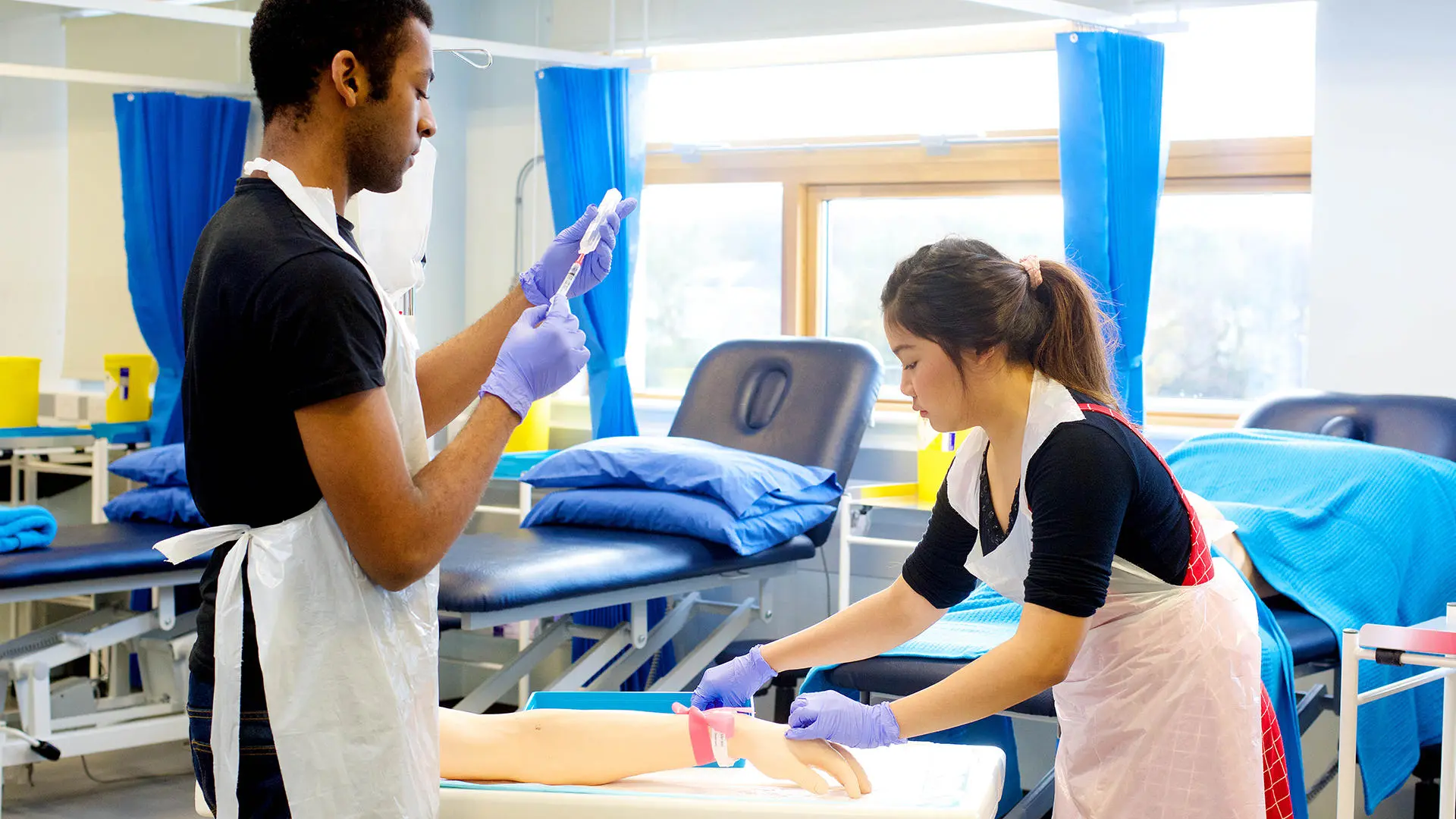This page covers everything you need to know when applying for our Medicine & Surgery (MBBS) programme, including:
Before you apply for MBBS
Think clearly about why you want to become a doctor and write a list of your reasons. It would be good to get these across in your application.
Where do you want to study? Whichever university you apply to, make sure you visit it, talk to the students and have a good look around the campus and city. Five years is a long time.
Try to get some experience in a care environment. This might be work shadowing in a hospital, hospice or GP surgery but could also be time assisting in a care home or other care organisation. It’s good to see what being a healthcare professional is really about. If you’ve tried applying for work experience and just cannot get any, then don’t worry. Think about doing some voluntary work or some community related work.
If you have any questions before or during your application, feel free to contact MBBS Admissions via email.
Things to think about
How to apply
UK applications are made via UCAS. UK medical school applications need to be submitted by October the year before entry.
International applications can be made via UCAS or direct via our application portal. We accept direct applications throughout the year. However, you should apply as early as possible so that we can process your application in good time.
There are several stages to the MBBS admissions process:
Personal statement for MBBS
You should look at your personal statement in the same way as a job application. You should use it to provide evidence that you have the qualities required by a trainee doctor. We want to know what you have done and the qualities you have demonstrated.
Observation does not mean experience. Focus on what you have done, what you have gained from this or how you've reflected on it. We don't want a detailed account of what you observed.
Your personal statement is split into three questions. Here's how to answer each question:
Remember, we also assess applications based on the quality of writing. Avoid careless mistakes in spelling, grammar and punctuation, as they can impact your score. Be thoughtful about how you present your personal statement. Avoid unnecessary abbreviations or technical details that don't add value.
Reference for MBBS
In your reference, we want to know what your referee thinks about you as a whole person. We don't just want to know about your academic achievements and potential.
Your reference is likely to be written by your head teacher, college principal, head of year or form tutor.
The areas in which we require information from your referee are listed below:
Interviews for MBBS
The interview stage takes place between December and April each year. This usually consists of a multi-station Multiple Mini Interview (MMI). For those interviews taking place at our Preston Campus you will also have the opportunity to take a guided tour of the School facilities.
Further information for MBBS
Our School values the positive impacts of disabilities and diversity on our MBBS programme. We welcome and encourage applications from all students. We offer guidance on diversity and disability, which you should look at before filling out your application.
Related links
- Subject
Medicine
- Course
Medicine & Surgery, MBBS
- Article
How to become a doctor
